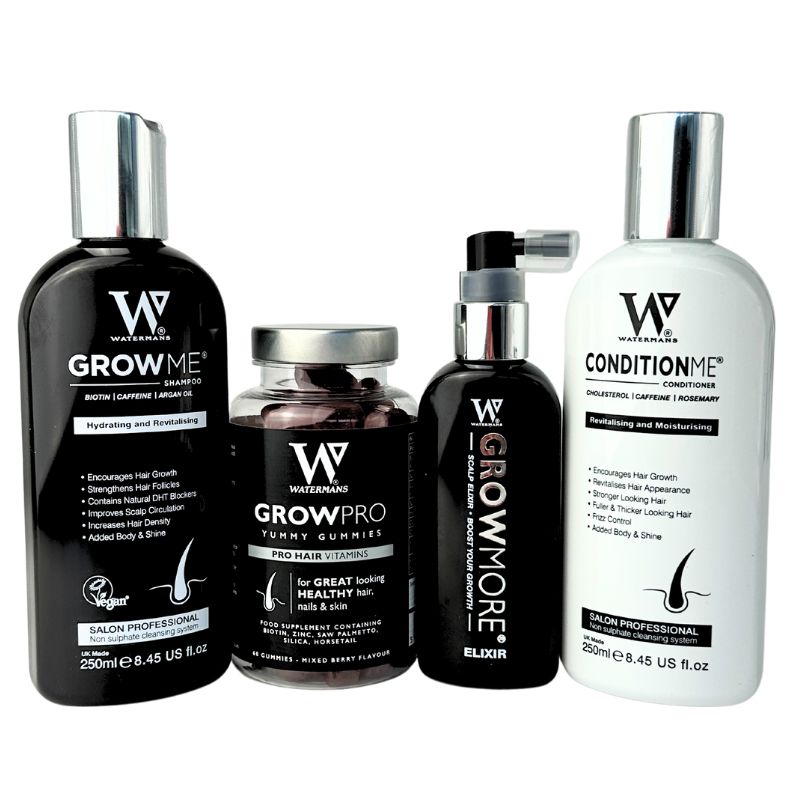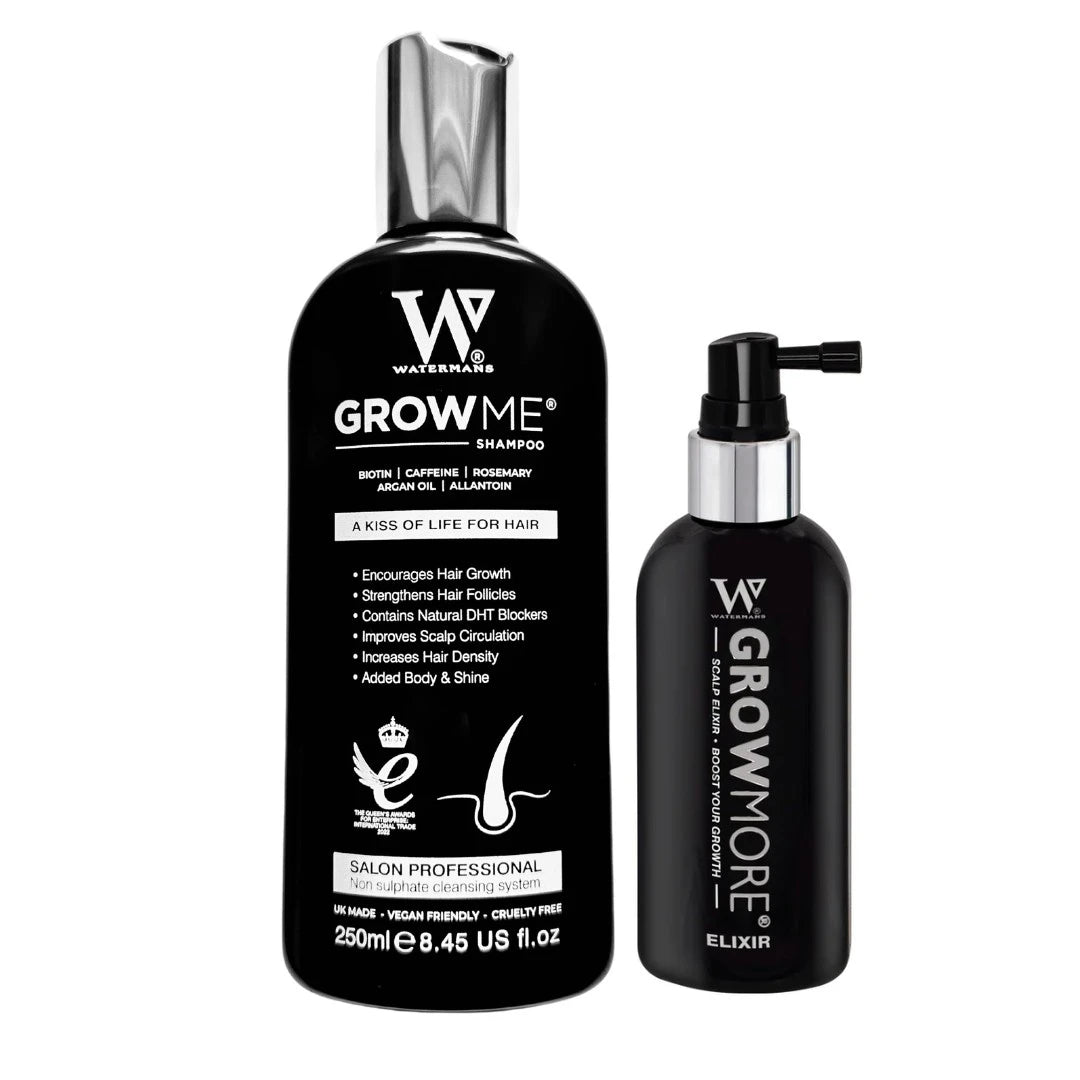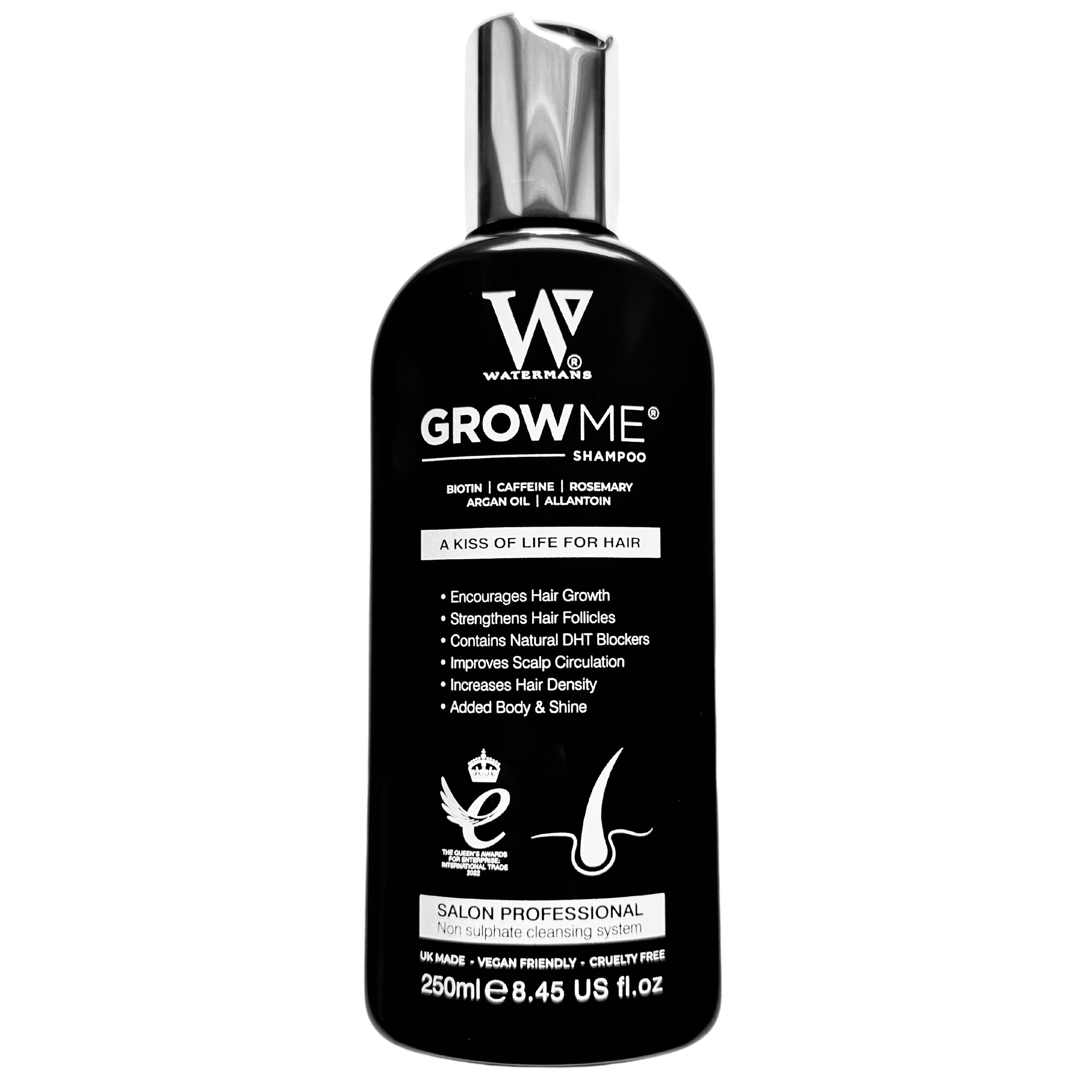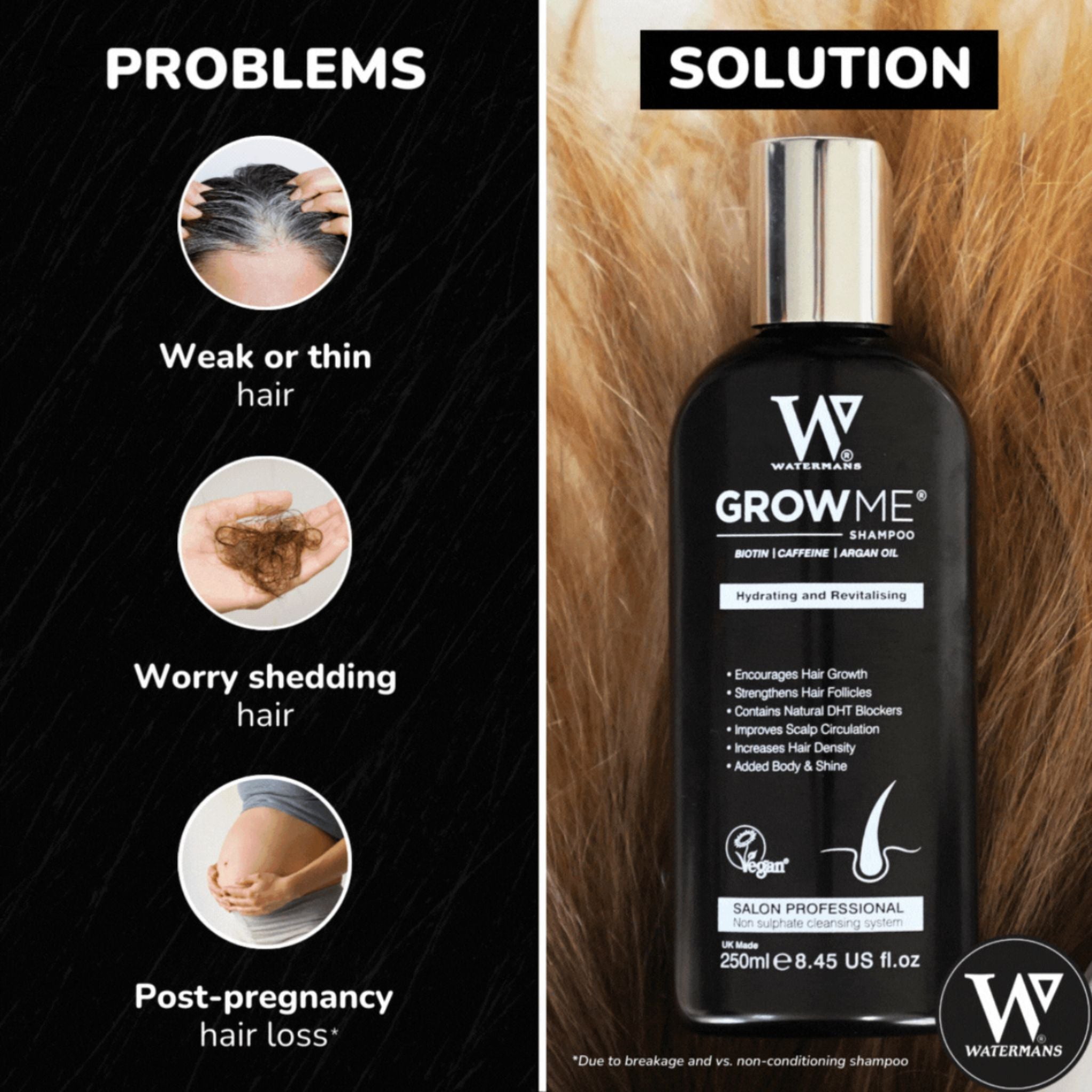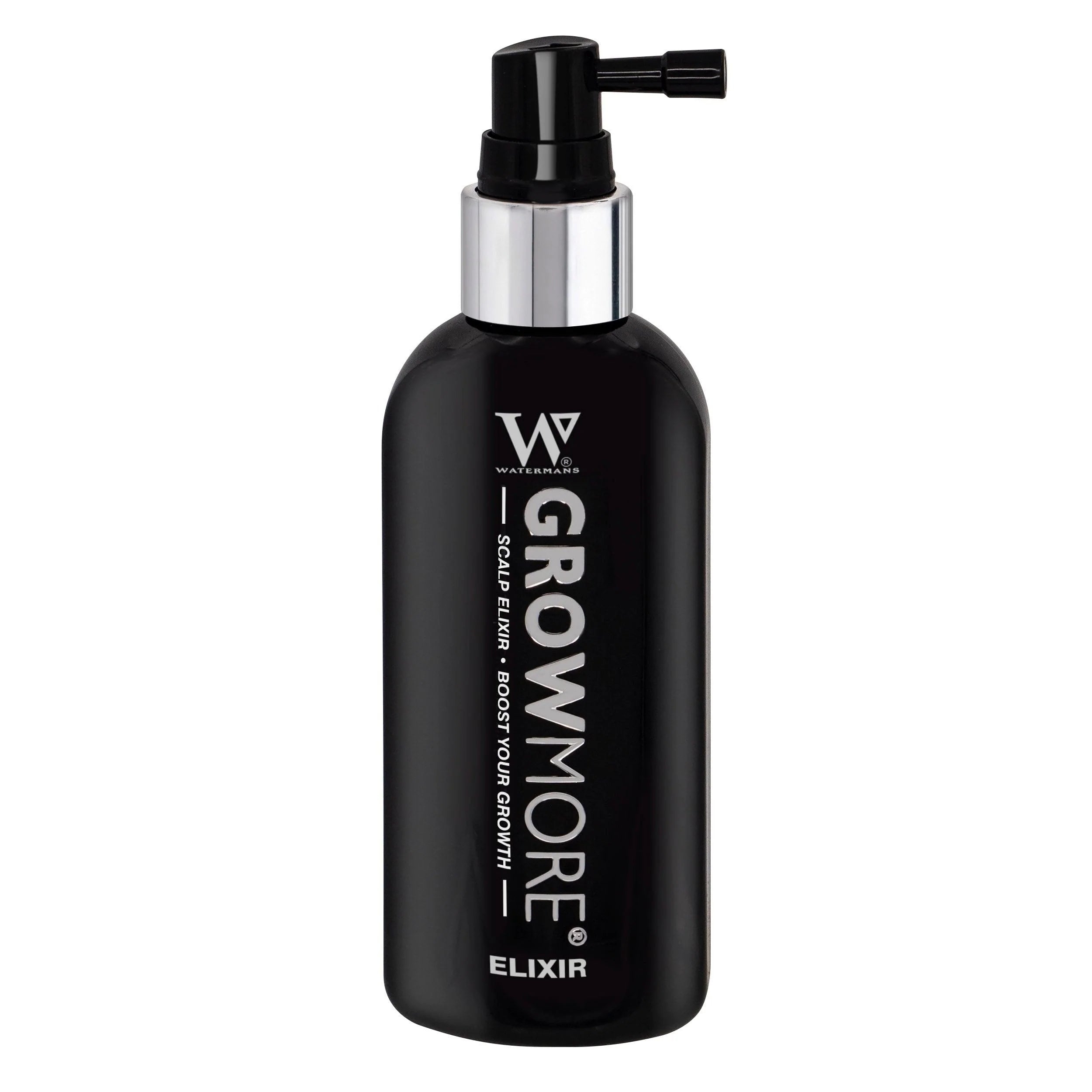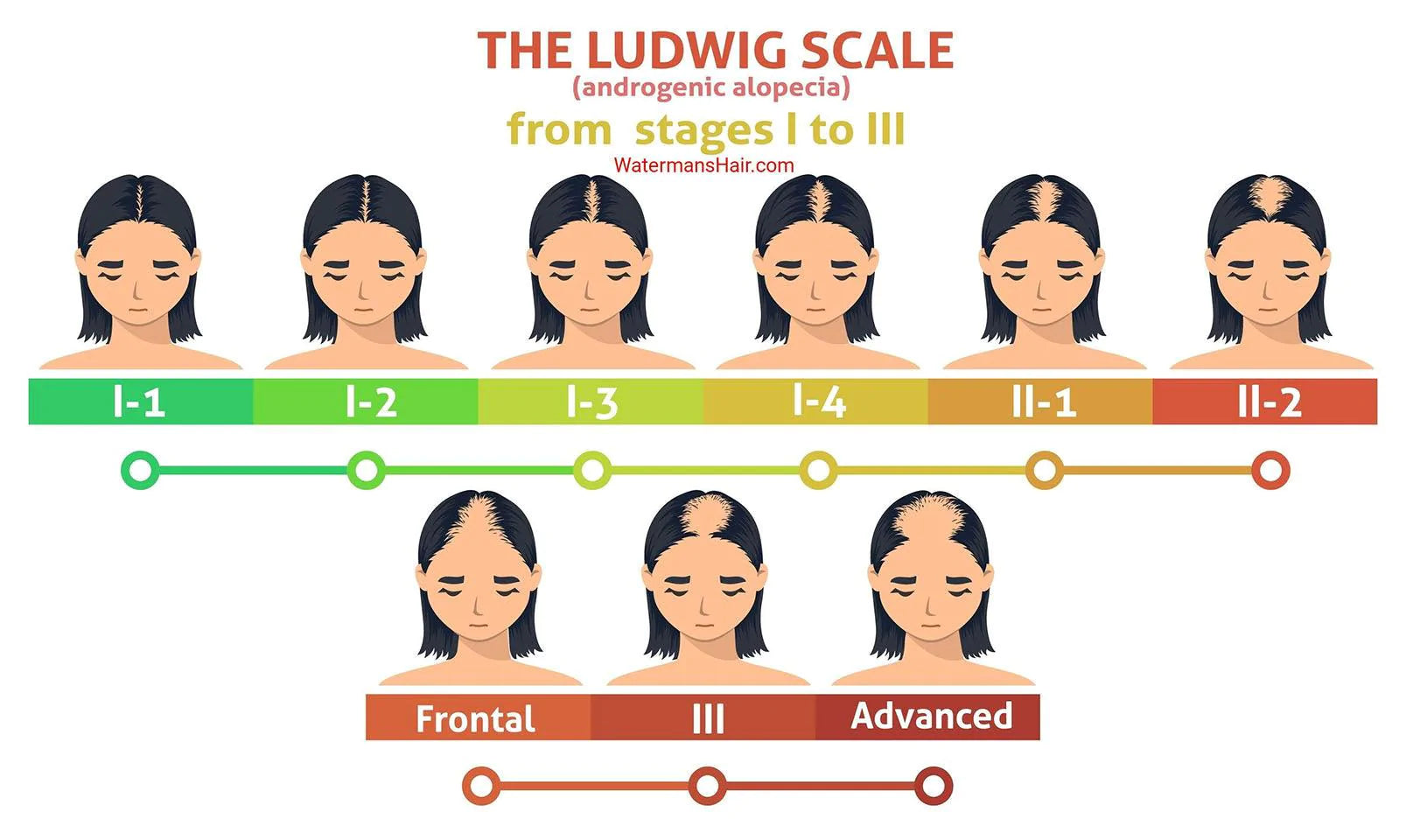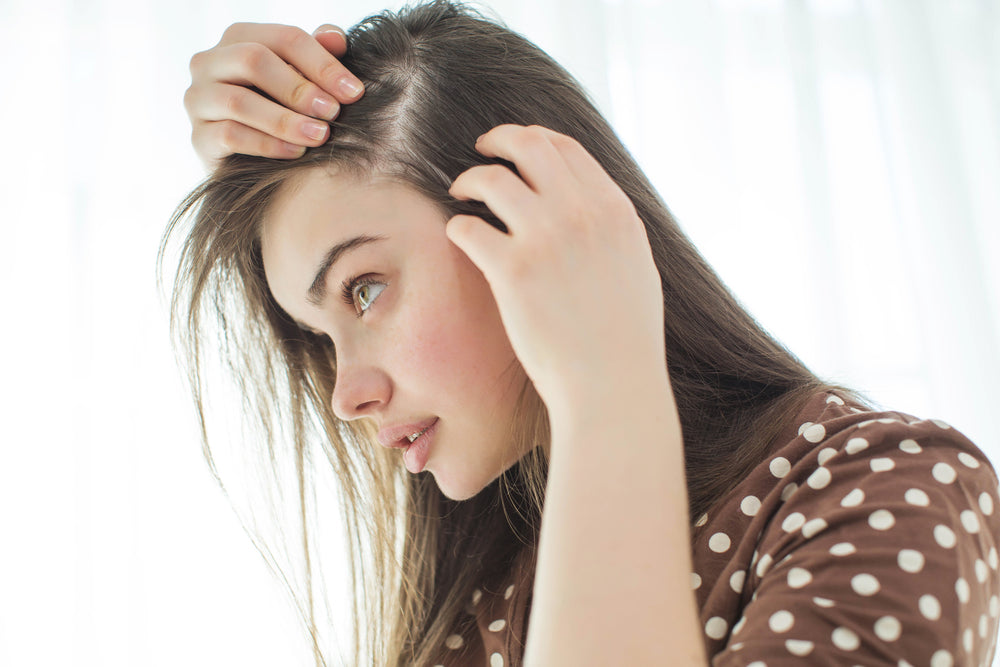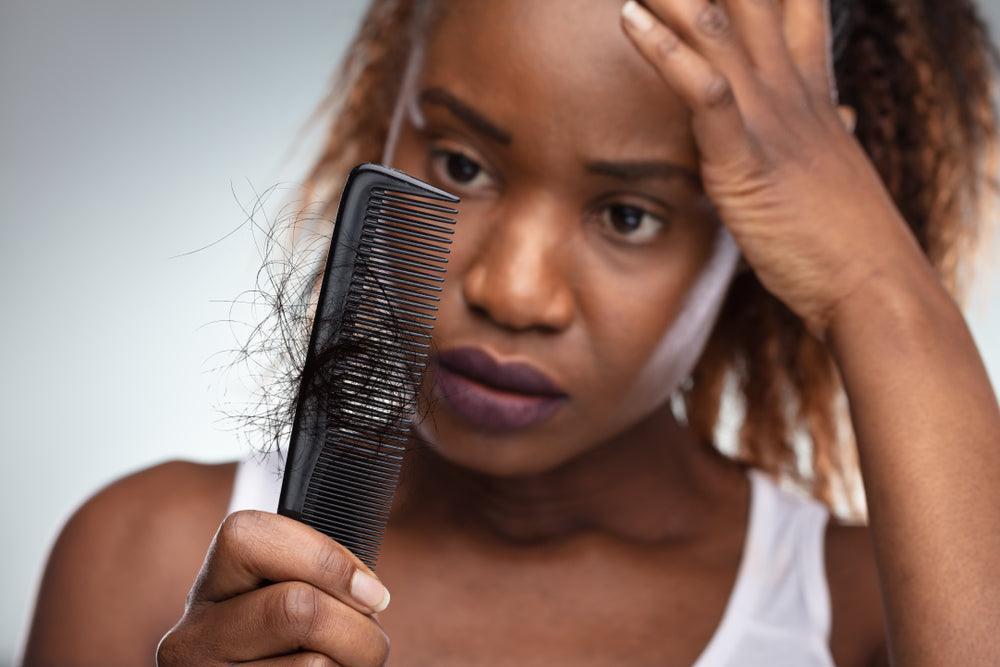
Top 10 Causes in Hair Loss in Women: Treatment & Prevention
More inform about classifying female pattern baldness
The primary cause of androgenetic alopecia is believed to be a combination of genetic and hormonal factors. It is thought that certain hormones, such as dihydrotestosterone (DHT), play a role in causing the hair follicles to shrink, leading to thinner and weaker hair. This process is known as miniaturization, and it can ultimately lead to complete hair loss.
There are several treatments available for androgenetic alopecia. One popular treatment is the use of topical minoxidil, which is believed to work by increasing blood flow to the scalp, thereby promoting hair growth. Another treatment option is oral finasteride, which is a medication that is thought to work by blocking the production of DHT.
However, those treatments may have side effects and not suitable for all individuals. In addition, an easy and healthy approach is to take care of your scalp and hair to promote their growth. A hair care product like 'Grow ME SHAMPOO' for instance contains ingredients that can nourish and stimulate the scalp, promoting healthier, stronger hair. Using a product like this as part of your hair care routine can help to improve the overall health of your hair and scalp, and may even help to promote hair growth.
In conclusion, androgenetic alopecia is a common condition that affects many women. While the primary cause is believed to be genetic, hormones also play a role in the development of the condition. There are several treatment options available, but it is also important to adopt a healthy hair care routine and use products that can nourish and promote hair growth.
2. Hormonal changes in the body can have a significant impact on hair growth and hair loss. This is particularly true for women, as the hormonal fluctuations that occur during pregnancy, menopause hair loss, and certain medical conditions can all contribute to hair loss. One such condition is Polycystic Ovary Syndrome (PCOS), which is a common hormonal disorder that affects women of reproductive age. In this article, we will take a closer look at the connection between hormonal changes and hair loss, including the causes, symptoms, and treatment options available.

During pregnancy, the body experiences a surge of hormones, which can lead to a thickening of the hair. However, after giving birth, the body experiences another hormonal shift, which can cause hair loss. This hair loss is known as postpartum hair loss, and it can occur three to six months after giving birth.
Menopause also brings about hormonal changes that can lead to hair loss. As women approach menopause, the levels of estrogen and progesterone in the body begin to decline, which can cause hair to become thinner and weaker.
PCOS is a hormonal disorder that affects women of reproductive age, it is characterized by an imbalance of estrogen and progesterone. This imbalance can lead to a number of symptoms, including hair loss. Women with PCOS may experience hair loss on the scalp, as well as increased hair growth on other parts of the body.
Thyroid problems can also cause hair loss. An overactive thyroid, or hyperthyroidism, can lead to hair loss, as well as an underactive thyroid, or hypothyroidism.
There are several treatments available for hair loss caused by hormonal changes. One popular treatment is the use of topical minoxidil, which is believed to work by increasing blood flow to the scalp, promoting hair growth. In addition, oral contraceptives may be prescribed to regulate the levels of hormones in the body, treating the underlying condition and preventing further hair loss.
However, some individuals may prefer a more natural approach. Hair care products like 'Grow Me shampoo' and 'Grow More Elixir' contain ingredients that can nourish and stimulate the scalp, promoting healthier, stronger hair. Using a product like this as part of your hair care routine can help to improve the overall health of your hair and scalp, and may even help to promote hair growth.
In conclusion, hormonal changes in the body can cause significant hair loss for women. Whether you are experiencing hair loss due to pregnancy, menopause, PCOS hair loss, or thyroid problems, there are treatment options available. It is important to consult with a healthcare professional to determine the underlying cause of your hair loss, and to develop an appropriate treatment plan. In addition, using natural hair care products can help to nourish and promote healthy hair growth.
3. Iron deficiency, also known as anemia, is a common condition that affects many women around the world. It is caused by a lack of iron in the body, which can lead to a number of health problems, including hair loss.

Iron is an essential mineral that is needed for the body to produce hemoglobin, a protein that helps to carry oxygen to the cells. Without enough iron, the body cannot produce enough hemoglobin, which leads to anemia. Symptoms of anemia include fatigue, weakness, shortness of breath, and hair loss.
Hair loss caused by iron deficiency typically occurs on the scalp and can take the form of thinning or patchy hair. In severe cases, it can lead to complete hair loss. However, it's important to note that there are other causes of hair loss and iron deficiency is just one of them.
Iron deficiency can be caused by a number of factors, including poor diet, heavy menstrual bleeding, gastrointestinal bleeding, or certain medical conditions.
There are a number of ways to increase your iron levels and prevent iron deficiency anemia. One of the best ways to do this is by eating iron-rich foods, such as red meat, dark leafy greens, beans, and fortified cereals. Including Vitamin C-rich food in the same meal can aid in iron absorption.
Another way to increase your iron levels is by taking iron supplements. There are a variety of forms, including ferrous sulfate, ferrous fumarate, and ferrous gluconate. Your doctor will recommend the best form and dosage for you.
It is important to note that hair loss caused by iron deficiency is usually reversible with treatment. Once your iron levels are back to normal, your hair should start to regrow. However, it may take several months before you see results. If you are concerned about hair loss, it is a good idea to speak with your healthcare professional to discuss the best course of treatment for you.
To prevent hair loss caused by iron deficiency, it's important to maintain a healthy diet rich in iron and to address any underlying medical conditions that may be contributing to your anemia. Regular checkups are important to evaluate if your treatment plan is effective and if any adjustments needs to be made.
4. Stress is a common issue that affects many women around the world. It can take many forms, including physical or emotional stress, and can have a significant impact on our physical and emotional well-being. One of the ways that stress can manifest itself is through hair loss, known as telogen effluvium.

Telogen effluvium is a condition that causes hair to enter the resting phase and then fall out in large numbers. The hair loss typically occurs several months after the stressor has occurred, and it can be diffuse, meaning that it affects the entire scalp, or localized to one area. The hair loss can be alarming, especially if you experience it suddenly or in large amounts.
Stress causes hair loss by affecting the hair growth cycle. When the body is under stress, it diverts energy away from the hair growth cycle and towards more important functions, such as maintaining a steady heart rate and blood pressure. This causes hair to enter the resting phase, and then fall out.
The good news is that there are a number of things you can do to help combat hair loss caused by stress. One of the most effective ways to do this is by managing your stress levels. This can include things like exercising regularly, practicing relaxation techniques, such as yoga or meditation, and getting enough sleep.
Another effective approach is to eat a healthy diet that is rich in vitamins and minerals. This can include foods such as lean protein, fruits, and vegetables, as well as iron-rich foods, such as red meat, dark leafy greens, and fortified cereals. Taking multivitamins and supplements such as biotin, iron, and zinc can also be beneficial to support hair growth.
Also, it's very important to take care of your hair, by avoiding excessive heat, chemical treatments or tight hairstyles that pull on the hair. It's also recommended to use gentle hair care products that are formulated specifically to support hair growth, such as sulphate free shampoos, or natural oils like coconut oil and castor oil.
It is important to note that hair loss caused by stress is usually reversible, so it's essential to take steps to manage your stress levels and maintain a healthy lifestyle. If you are experiencing hair loss and are concerned, it's best to speak with a healthcare professional to discuss the best course of treatment for you.
In conclusion, stress can cause hair loss and can be a frustrating and difficult thing to deal with. But by managing stress levels, eating well, practicing self-care and using appropriate hair care products, it can be mitigated. Also, keep in mind that a full recovery of hair growth may take some time, but it will happen and it's worth it!
5. Medication that causes Hair loss is a common side effect of many medications, including those used to treat cancer, arthritis, depression, heart problems, and high blood pressure. The condition is known as telogen effluvium and it is a type of hair loss that occurs when the hair growth cycle is disrupted.

Certain medications can cause telogen effluvium by affecting the levels of hormones in the body, such as thyroid hormones, androgen and estrogen, or by altering the blood flow to the hair follicles.
Chemotherapy is one of the most well-known medications that can cause hair loss. It works by targeting fast-growing cells in the body, including those in the hair follicles. As a result, it can cause hair loss on the scalp, as well as on other areas of the body, such as the eyelashes, eyebrows, and body hair.
Other medications that are known to cause hair loss include:
- Beta-blockers, which are used to treat high blood pressure and heart problems
- Blood thinners, such as warfarin, heparin, and aspirin
- Antidepressants, such as selective serotonin reuptake inhibitors (SSRIs)
- Nonsteroidal anti-inflammatory drugs (NSAIDs), which are used to treat arthritis and other conditions
- Acne medication, such as isotretinoin
- Birth control pills
- Steroids, such as prednisone, that are used to treat a variety of inflammatory conditions
It's important to note that not everyone who takes these medications will experience hair loss. And if hair loss does occur, it's usually temporary and will regrow once the medication is discontinued. However, there are some cases where hair loss may be permanent, especially with certain types of chemotherapy.
If you are experiencing hair loss while taking any of the above medications, it's best to speak with your healthcare professional. They may be able to adjust your dosage, switch you to a different medication, or recommend other treatment options.
In some cases, you may also be prescribed hair growth stimulating treatment such as topical minoxidil and oral finasteride.
It's also important to take care of your hair and scalp during this time. This can include gentle hair care routines and using sulfate-free shampoos and conditioners. It's also important to eat a healthy diet that is rich in vitamins and minerals, such as iron and vitamin C, to support healthy hair growth.
It's important to be aware of the potential side effects of any medication you're taking, including hair loss. If you're concerned about hair loss or have any questions about your medication, it's best to speak with your healthcare professional. They can provide you with the information and support you need to manage your condition and maintain healthy hair growth.
6. Autoimmune disorders are a group of conditions in which the immune system mistakenly attacks the body's own cells and tissues. One of the most well-known autoimmune disorders that can affect the hair is alopecia areata.

Alopecia areata is a condition that causes hair loss on the scalp, as well as other areas of the body, such as the beard, eyebrows, and eyelashes. The hair loss typically occurs in small, round patches, but in some cases, it can progress to complete hair loss on the scalp, which is known as alopecia totalis, or all over the body, known as alopecia universalis.
The exact cause of alopecia areata is not known, but it is thought to be triggered by a combination of genetic and environmental factors. Researchers believe that the immune system mistakenly attacks the hair follicles, causing them to enter a dormant phase and stop producing new hair.
There is no known cure for alopecia areata, but there are a number of treatment options available to help manage the condition. One of the most effective is corticosteroids, which are medications that suppress the immune system and help to reduce inflammation. They can be administered topically, or orally.
Another treatment option is topical minoxidil, which is applied directly to the scalp to stimulate hair growth.
Injections of biotin can also be an effective treatment, as biotin deficiency has been associated with hair loss.
Light therapy such as laser or UV therapy may also be helpful in some cases.
However, it's important to note that not everyone responds to these treatments, and some people may experience only a partial regrowth of hair.
For some individuals, hair loss may be permanent and they may choose to explore options such as wigs, hairpieces, or hair-loss concealers to help them feel more comfortable with their appearance.
It's also important to take care of your hair and scalp by using gentle hair care products, eating a healthy diet, and practicing good stress management techniques.
It's important to know that living with an autoimmune disorder can be challenging, but you're not alone. There are a number of support groups, organizations, and online communities that can provide information, resources, and support for people living with alopecia areata.
If you're experiencing hair loss and suspect that you may have alopecia areata, it's best to speak with a healthcare professional or a hair specialist. They can provide you with an accurate diagnosis, as well as the information and resources you need to manage the condition. With the right treatment and support, it's possible to improve the appearance of your hair and boost your confidence.
Hair styling is a great way to change up your look and express your personal style, but overuse of hot tools, chemical treatments, and tight hairstyles can cause damage to the hair shaft and lead to hair loss.
7. Heat damage occurs when the hair’s natural moisture is evaporated by exposure to high temperatures. This can cause the hair to become dry, brittle, and breakable, leading to split ends, frizz, and overall lack of shine. Constant use of heat styling tools such as hair dryers, flat irons, and curling wands can cause damage over time, and this damage is cumulative and irreversible.

Chemical treatments such as hair dyes, relaxers, and perm also cause damage, by altering the natural structure of the hair. They can cause hair to become dry and brittle, and in some cases, hair may become excessively porous and absorb moisture too quickly, leading to a lack of strength, luster and elasticity.
Tight hairstyles that pull on the hair, such as braids, ponytails, and buns, can also cause hair loss by putting excessive tension on the hair. This can cause hair to break and fall out, especially when combined with other damaging factors, such as heat and chemical treatments.
To protect your hair from heat damage and preserve its health, it's important to use a heat protection spray, such as Heat protection spray, before styling.
8. Poor Nutrition is one of the leading causes of hair loss in women. A diet that is low in protein, iron, and other essential vitamins and minerals can lead to hair loss and other hair-related issues.
Protein is an essential nutrient for healthy hair growth. Hair is made up of keratin, a type of protein, so it's important to have enough protein in your diet to keep your hair strong and healthy. A lack of protein in the diet can cause hair to become weak, brittle, and easily damaged, leading to hair loss.

Iron is another important nutrient that is necessary for the production of hemoglobin, which carries oxygen to the hair follicles. Anemia caused by iron deficiency can lead to hair loss.
Vitamins and minerals like biotin, zinc, vitamin C, and vitamin D are also crucial for healthy hair growth. These nutrients help to keep the hair strong, nourished, and moisturized, which can reduce the risk of hair loss.
It's not always easy to get all the nutrients we need from our diet, especially if you have a busy lifestyle or have picky eating habits. And that's where supplements like Watermans GrowPro Yummy Gummies come in. It's specially formulated with a blend of essential vitamins and minerals that support hair growth, including Biotin, Zinc, Saw Palmetto, Silica, Horsetail.
These gummies are also a convenient and delicious way to supplement your diet and ensure that you
9. Scalp infections, such as fungal and bacterial infections, are a common cause of hair loss. These infections can affect the hair follicles, causing irritation, inflammation, and ultimately, hair loss.
Fungal infections, such as ringworm, are caused by a type of fungus known as dermatophytes. These infections can cause patches of hair loss, redness, itching, and scaling on the scalp.

Bacterial infections, such as folliculitis, are caused by a bacterial overgrowth on the scalp. These infections can cause red, swollen, and painful bumps on the scalp, as well as hair loss.
To diagnose a scalp infection, a healthcare professional will typically perform a physical examination and may also take a scraping or culture of the affected area to identify the specific type of fungus or bacteria causing the infection.
Treatment for scalp infections typically includes antifungal or antibiotic medications, which can be applied topically or taken orally. It's important to follow the instructions carefully and complete the full course of treatment, even if the symptoms improve before the medication is finished.
In addition to medication, it's also important to practice good scalp care to help prevent the spread of infection and promote healthy hair growth. This can include keeping the scalp clean, dry and free of excess oils, avoid sharing personal grooming items, and avoiding tight hairstyles that can trap moisture and oil on the scalp.
It's also important to avoid products with harsh chemicals or ingredients that can irritate the scalp, and to use gentle hair care products, such as sulphate free shampoos, which can help to reduce inflammation and promote healthy hair growth.
Another good option is to use a tea tree oil-based shampoo, as tea tree oil has antifungal and antibacterial properties.
Scalp infections can be difficult to deal with, but with the right treatment and good scalp care, it's possible to clear up the infection and promote healthy hair growth.
10. Trichotillomania is a mental disorder that causes a person to compulsively pull out their own hair, resulting in hair loss on the scalp and other areas of the body. It is considered a form of Body-Focused Repetitive Behaviour (BFRB) which also includes other related disorders such as dermatillomania (skin picking) or onychophagia (nail biting).

The condition is more common in females than males, and it can begin in childhood or adolescence. The hair pulling may be done subconsciously, or it may be a conscious, deliberate act, and it's often triggered by stress, anxiety, or boredom.
The symptoms of trichotillomania can include:
- Recurrent hair pulling from the scalp, eyebrows, eyelashes, beard, or other areas of the body
- Visible hair loss, often in the form of patchy bald spots
- A feeling of tension or a strong urge to pull hair prior to pulling
- A sense of relief, pleasure or gratification after pulling
- Avoiding certain activities, places, or people due to the hair pulling.
The hair pulling can cause significant emotional distress, impacting the person's self-esteem, relationships, and daily functioning.
Treatment for trichotillomania typically involves a combination of approaches, such as therapy and medication.
Cognitive Behavioral Therapy (CBT) is one of the most effective therapies for trichotillomania, it can teach the person to recognize and change the thought patterns and behaviors that lead to hair pulling. Habit reversal therapy (HRT) is a type of CBT which is designed to change the behavior of hair pulling.
Medications such as antidepressants, antipsychotics and anti-anxiety medications may also be prescribed to help manage symptoms of anxiety, depression, and impulsivity that often accompany trichotillomania.





